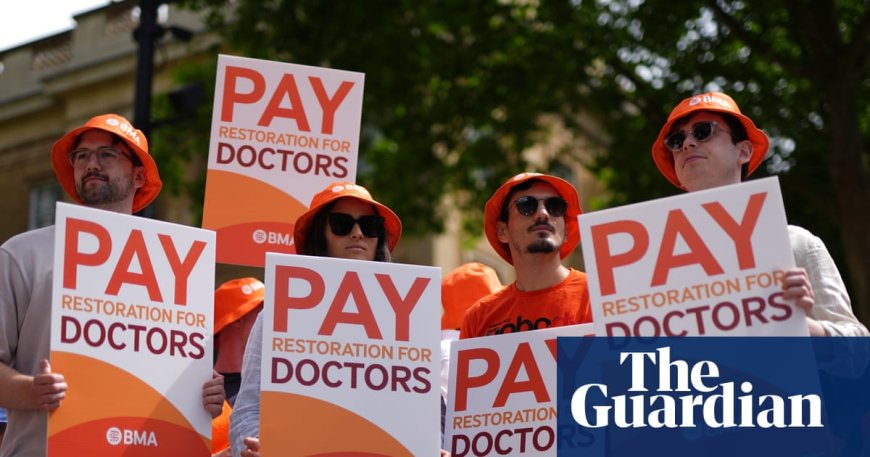BMA Criticizes NHS Plan for Resident Doctors' Strikes
The British Medical Association (BMA) has raised concerns about the NHS plan to handle upcoming strikes by resident doctors, warning of potential risks to patient safety. The BMA is urging hospitals to prioritize urgent and emergency care during the industrial action.

The British Medical Association (BMA) has raised concerns that the NHS's plan for handling upcoming resident doctors' strikes could jeopardize patient safety.
Approximately 50,000 resident doctors in England, previously referred to as junior doctors, are scheduled to participate in industrial action from 7am on Friday, July 25, to 7am on Wednesday, July 30, demanding a 29% pay increase.
Days before the strikes are set to commence, the BMA, the doctors' trade union, has criticized the changes in the health service's preparation approach.
During previous strikes, senior hospital doctors, including consultants, covered urgent and emergency services while most pre-planned work was postponed. However, the BMA noted that hospitals have been instructed to continue with non-urgent care during the upcoming dispute.
In a letter to NHS chief executive Sir Jim Mackey, BMA council chair Dr. Tom Dolphin and deputy council chair Dr. Emma Runswick expressed concerns about the decision to maintain non-urgent planned care, stating that it could compromise patient safety in both emergency and planned care situations.
The last round of strikes, which also involved other health workers, cost the NHS an estimated £1.5bn in England, leading to the postponement of 1.5m appointments, procedures, and operations.
While the BMA is committed to a process that allows hospitals to request striking doctors to return in case of patient safety risks, they are not in favor of facilitating non-urgent work.
The BMA emphasized that strikes by doctors can be conducted safely if properly planned, citing previous instances in 2016, 2022, 2023, and 2024. They expressed hope for a resolution before the walkout and willingness to collaborate with NHS England for safe care.
Discussions between the government and the BMA have been ongoing, with Health Secretary Wes Streeting ruling out an additional pay rise this year but hinting at negotiations on other contract aspects like student debt and working conditions.
NHS England's co-national medical director for secondary care, Prof Meghana Pandit, stressed the importance of maintaining urgent and planned care during strikes for patient safety.
The previous strikes concluded when resident doctor members accepted a government pay deal averaging 22.3% over two years. The 2025-26 pay deal included a 4% increase plus £750 on a consolidated basis, amounting to an average rise of 5.4%.
Government officials claimed these increases equated to a 28.9% pay rise, while the BMA argued for a 29.2% increase to address pay erosion since 2008-09.
According to the source: The Guardian.
What's Your Reaction?
 Like
0
Like
0
 Dislike
0
Dislike
0
 Love
0
Love
0
 Funny
0
Funny
0
 Angry
0
Angry
0
 Sad
0
Sad
0
 Wow
0
Wow
0


























































































































































































